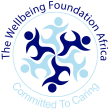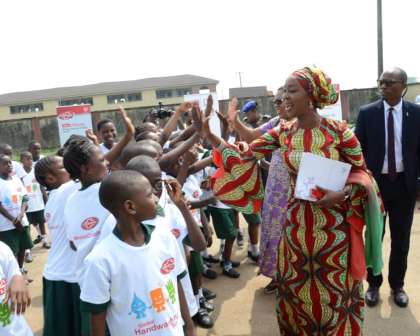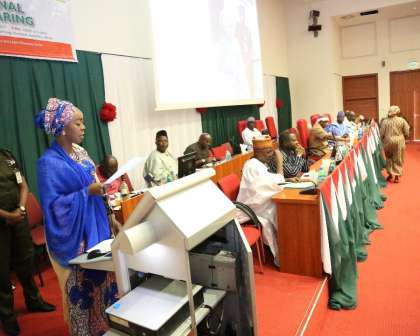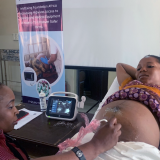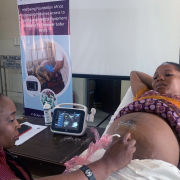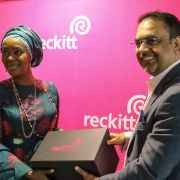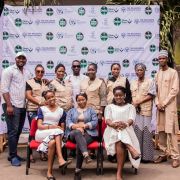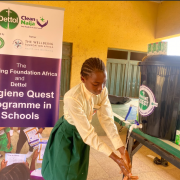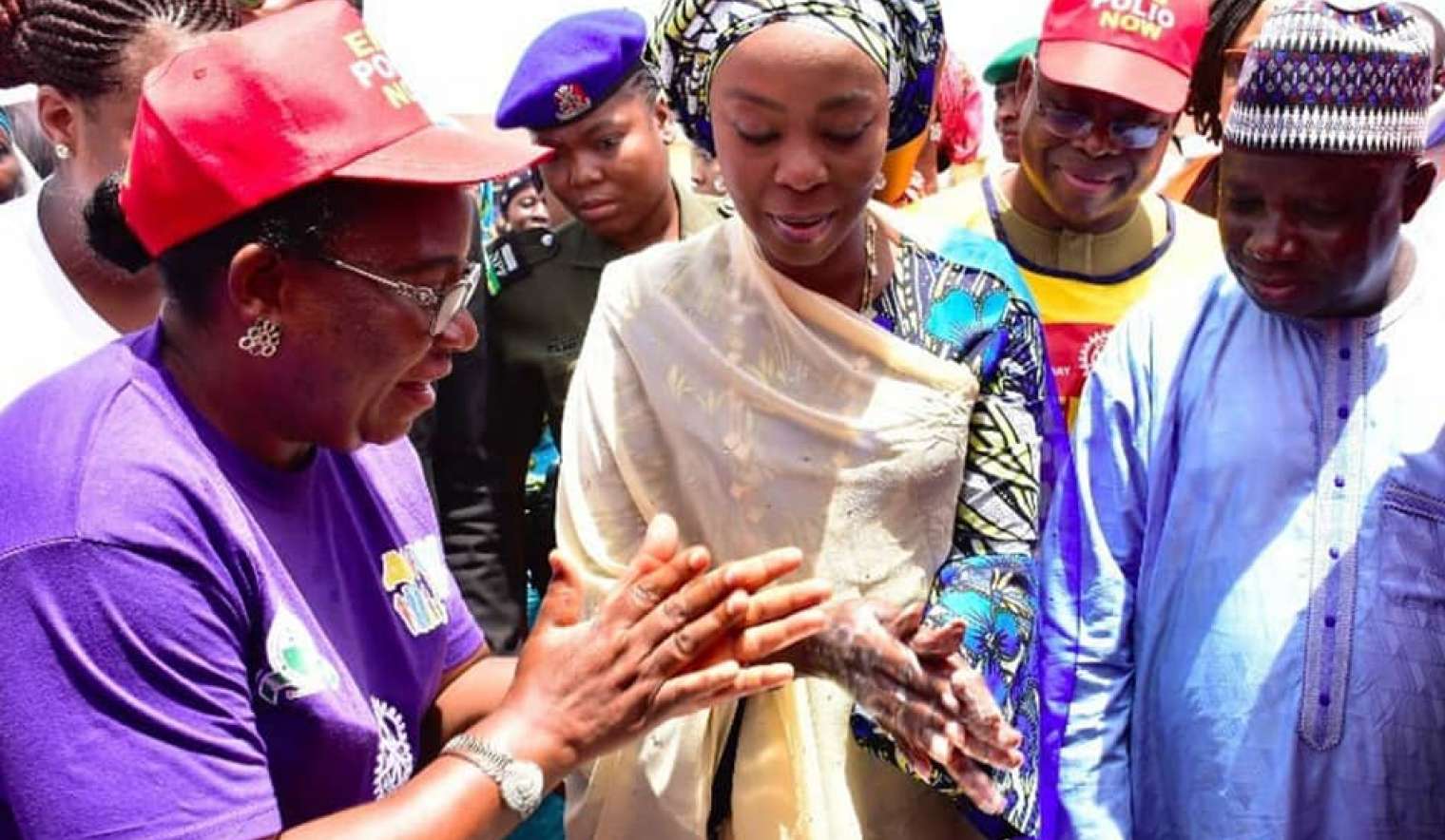
Toyin Saraki to World Water Week in Stockholm: “Without good water, sanitation and hygiene standards, global health security is impossible. Clean water is health and security”
Her Excellency Mrs Toyin Ojora Saraki, Founder-President of the Wellbeing Foundation Africa and Wife of the Senate President of the Federal Republic of Nigeria, has issued a call to action as World Water Week begins today in Stockholm.
World Water Week is the annual focal point for the world’s water issues and this year world leaders will assemble to address the theme ‘Water, ecosystems and human development.’
Earlier this year Mrs Saraki launched a global campaign to improve water, sanitation and hygiene standards in healthcare facilities, schools and communities, as she led a delegation to meet with the World Bank, Members of the United States Congress, the US State Department and leaders in the field of sanitation.
In her message to those assembling in Stockholm this week, Mrs Saraki commented:
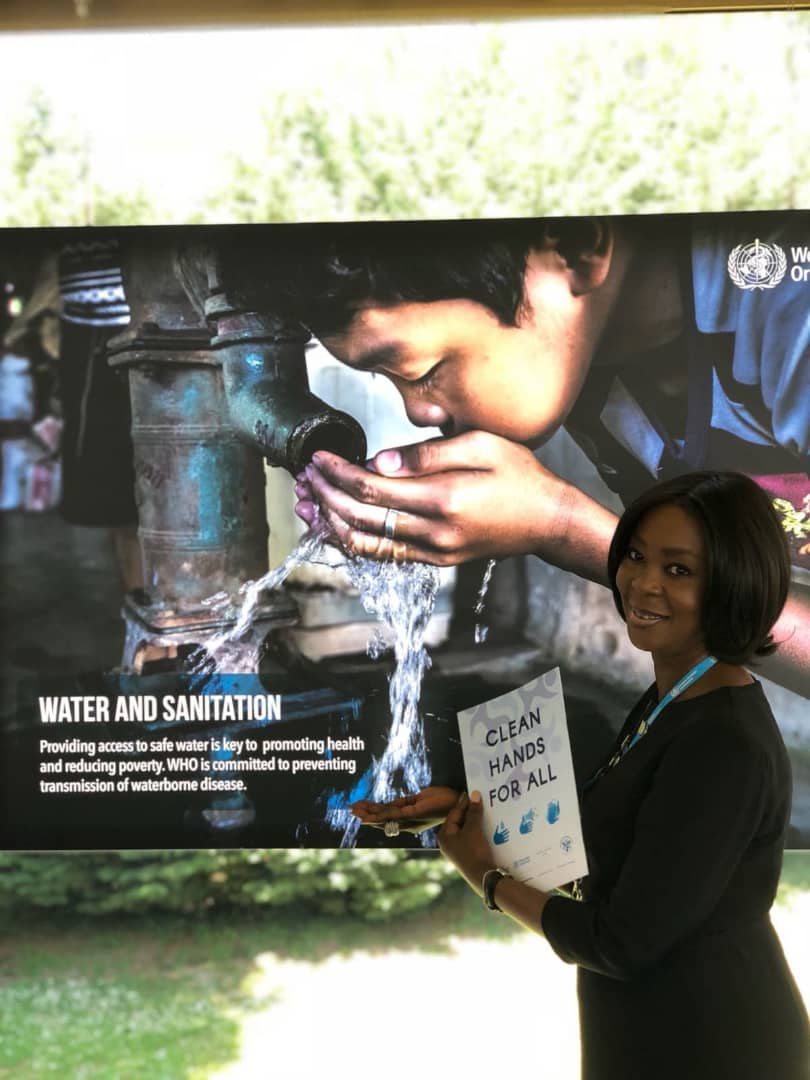
“Water, sanitation and hygiene (WASH) standards are central to health security and achieving universal health coverage and must take a correspondingly key role in global and national health policy. Certainly, if we want to get ahead of Ebola, Cholera and the next big threat, which may be as yet unknown, WASH must become a priority. In Stockholm this week, the Wellbeing Foundation will advocate strongly for an approach which goes beyond silos to placing WASH at the centre of health advocacy and global policy.”
“Health security will only be achieved by ensuring access to safe drinking water, sanitation, and hygiene in health care facilities. We are very far indeed from that standard. The Water Institute at the University of North Carolina, in its analysis of 129,000 health care facilities in the developing world, found that more than 65 percent of facilities lack both running water and soap for handwashing. Data from a subset of six countries — Bangladesh, Haiti, Malawi, Nepal, Senegal, and Tanzania — revealed that only 2 percent of their health care facilities have concurrent access to water, sanitation, hygiene, and waste management services.”
“In March, United Nations Secretary-General António Guterres recognized the need to address this urgent health concern with the launch of the Water Action Decade and his call to action in which he specifically challenged the global community to achieve universal WASH access in all health care facilities by 2030. Last year, the World Health Assembly adopted its Sepsis Resolution, calling on all 194 United Nations Member States to implement appropriate measures to reduce the human and health economic burden of sepsis, which is closely linked to water, sanitation and hygiene.”
“There is much work to be done to ensure that the focus on WASH lasts beyond World Water Week and translates into a radical change in how we understand and prioritise water, sanitation and hygiene. WASH is intrinsic to improving health and wellbeing across the globe. Developing country governments, alongside bilateral, multilateral, and private donors, each have key roles to play in demonstrating that without good WASH standards, global health security is impossible. Clean water is health – and security.”
Share this Article
